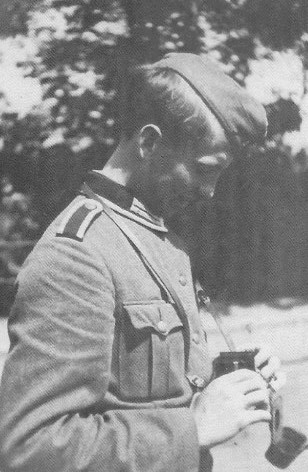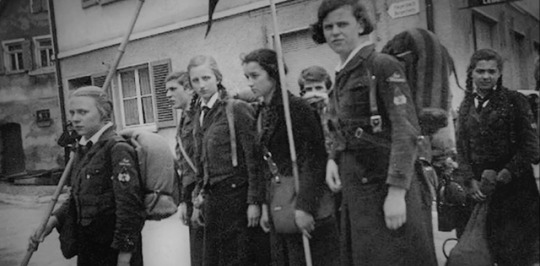Text
“Ich bin der Ansicht, dass in Deutschland in der Zeit von 1918-1933 und vor allem 1933 nicht zu sehr die Masse des Deutschen Volkes politisch versagt hat, sondern gerade diejenige Schicht, eines Staates, der ein Volk politisch führen sollte, die Intelligenz.”
—
I take the view that in Germany during the period 1918-1933 and above all in 1933, it was not so much the mass of the German people that had failed politically, but rather the class of a state that was supposed to lead a nation politically, the intelligentsia.
Hans Scholl (1918 – 1943), German member of the resistance against the Nazi regime
39 notes
·
View notes
Photo

9/100 Sophie Scholl was a member of the White Rose, a non-violent resistance group in Nazi Germany mostly made up of university students.
She became increasingly critical of the Nazi party through high school and university, and she joined her brother and others in creating a pamphlet and graffiti campaign calling for opposition to the Nazis. She and several other members were arrested when distributing their sixth pamphlet. They were convicted of treason and executed shortly after. She was only 21.
She’s famously quoted as having the last words “Such a fine, sunny day, and I have to go, but what does my death matter, if through us, thousands of people are awakened and stirred to action?”
7 notes
·
View notes
Photo
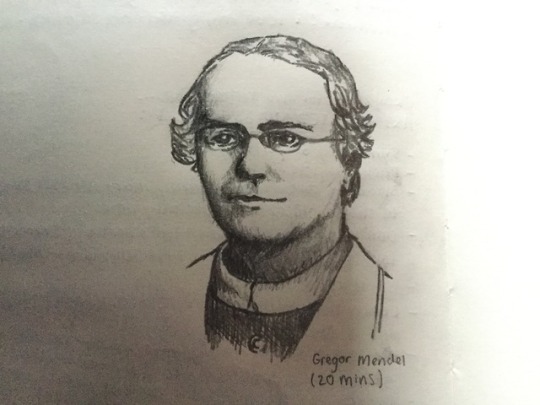
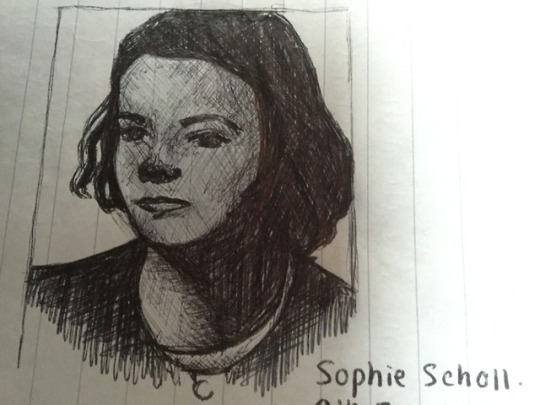
Recently been drawing a lot of portraiture, and what better way than to practice than recreating black and white photos? The first one is of the biologist Gregor Mendel, who is known for the realisation of why people often don’t look anything like their parents, due to genetic variation. The second one is of Sophie Scholl, who was part of the White Rose movement along with her older brother in Nazi Germany, and fought against Hitler before being executed in February 1943.
19 notes
·
View notes
Photo

To those who fought against oppression and spoke for those who couldn’t speak. Es lebe die Freiheit!
2 notes
·
View notes
Quote
How can we expect righteousness to prevail when there is hardly anyone willing to give himself up individually to a righteous cause?
Sophia Scholl (1921 - 1943). Her last words before being executed for treason against the Nazi regime on 22 February 1943. She continued: “Such a fine, sunny day, and I have to go, but what does my death matter, if through us, thousands of people are awakened and stirred to action?”
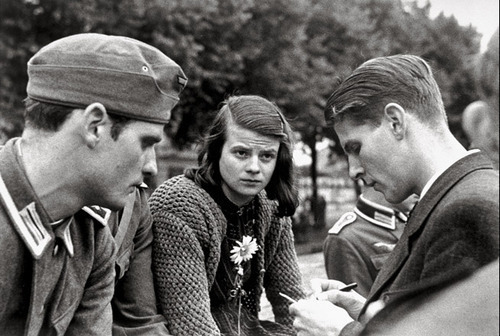
(via scholamoralis)
169 notes
·
View notes
Photo
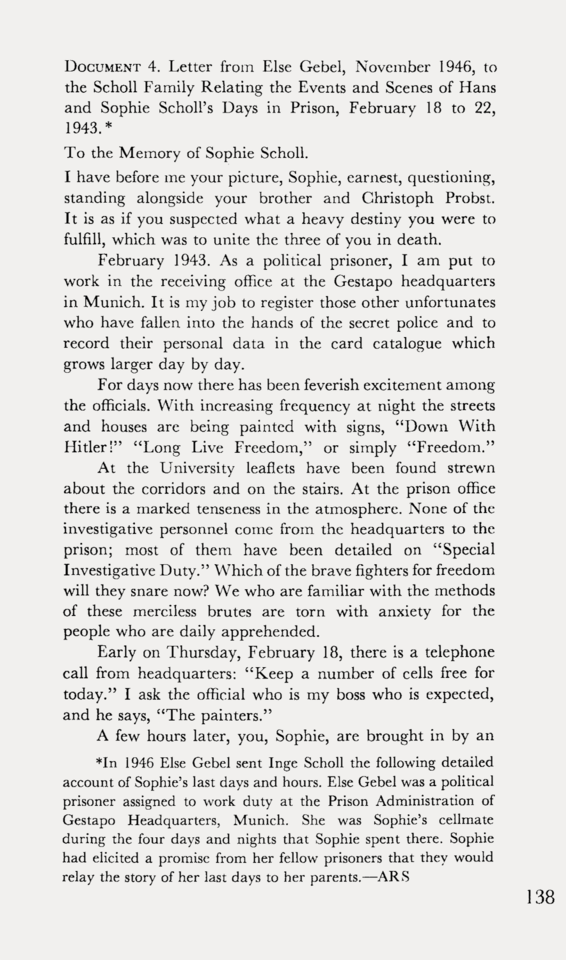
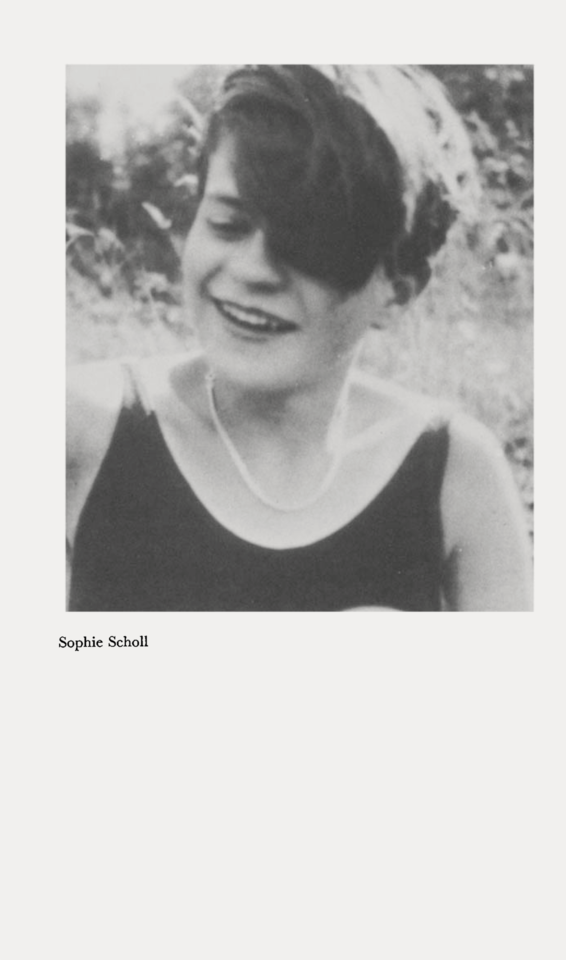
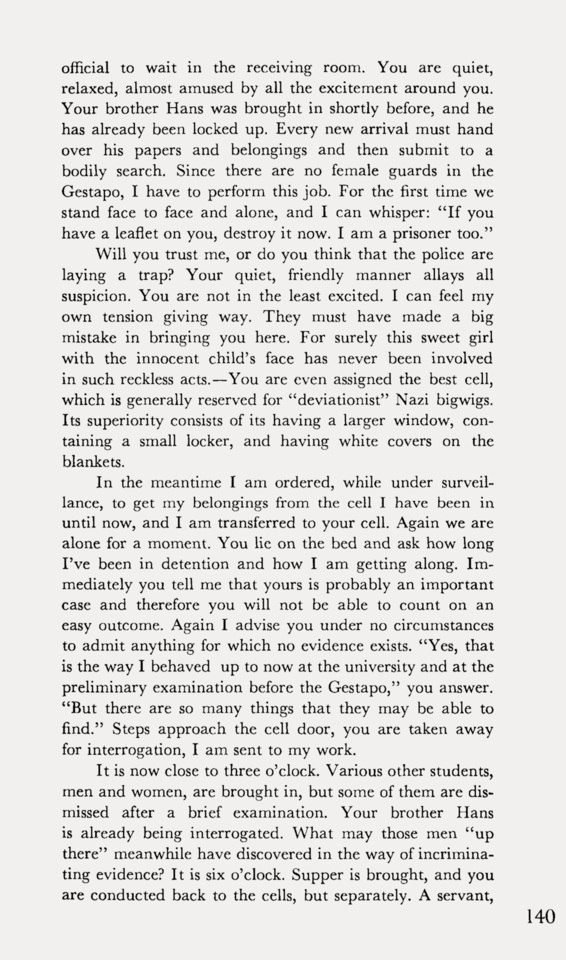
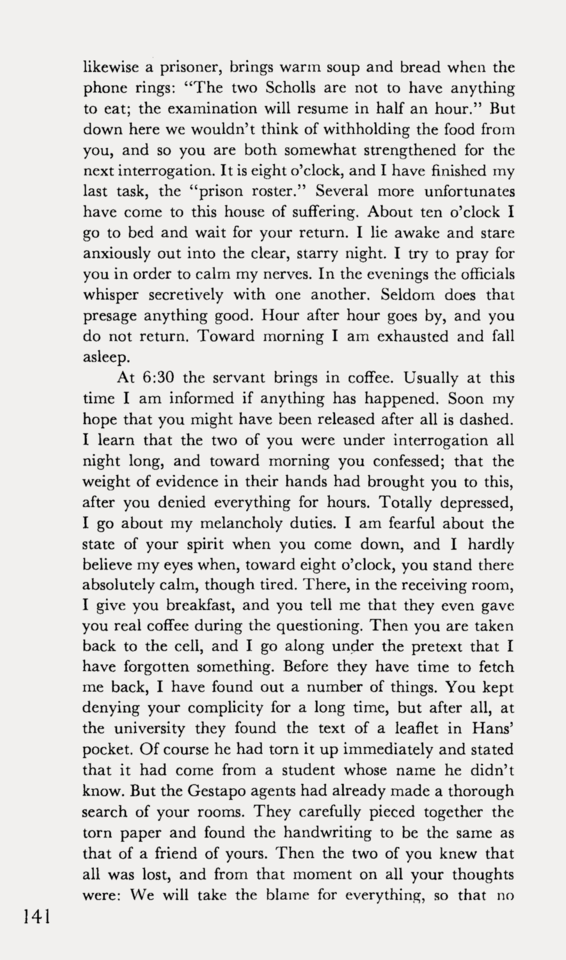
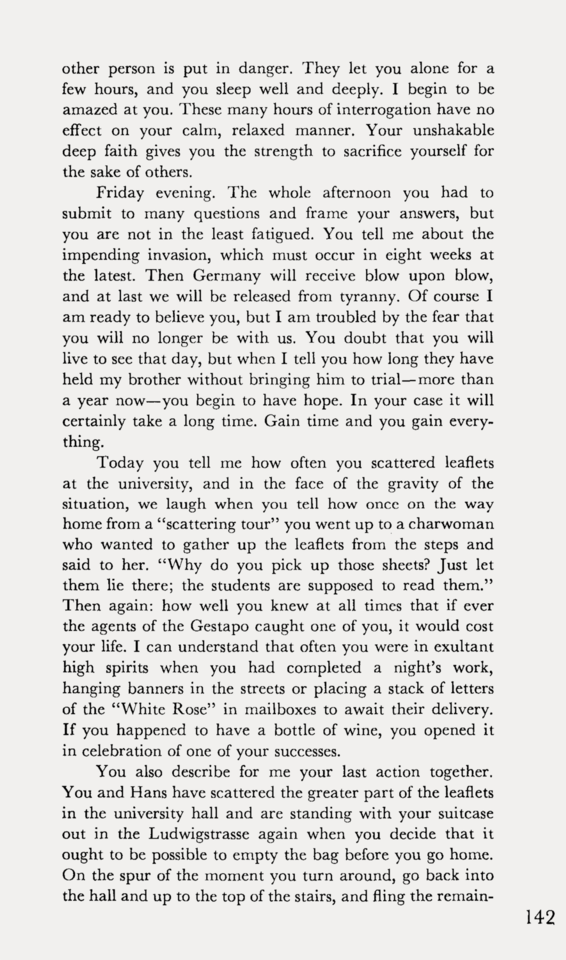
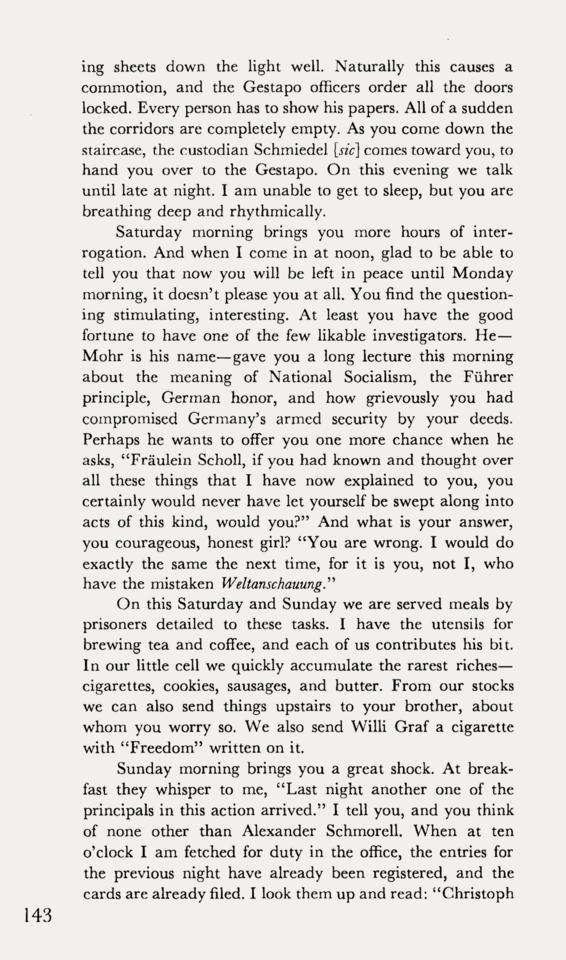
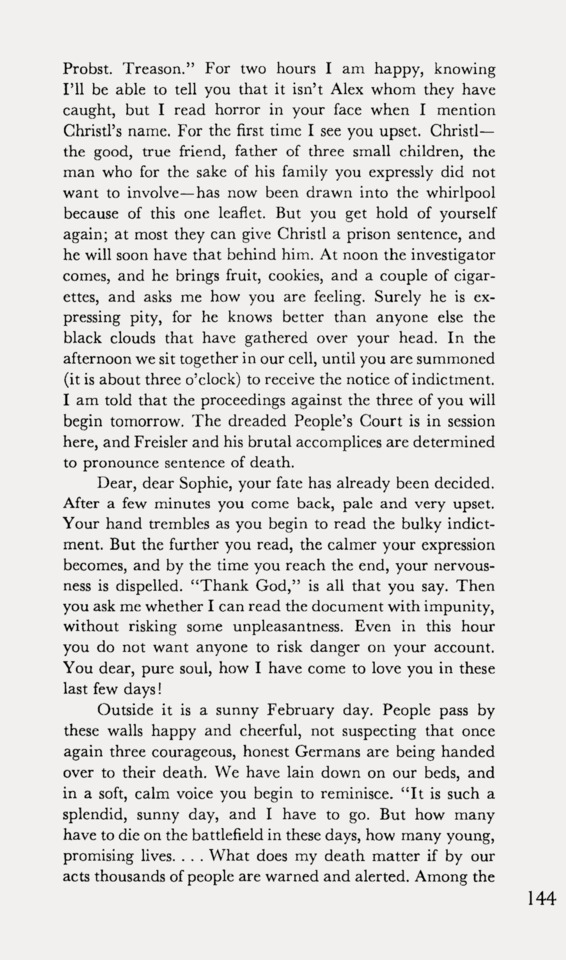
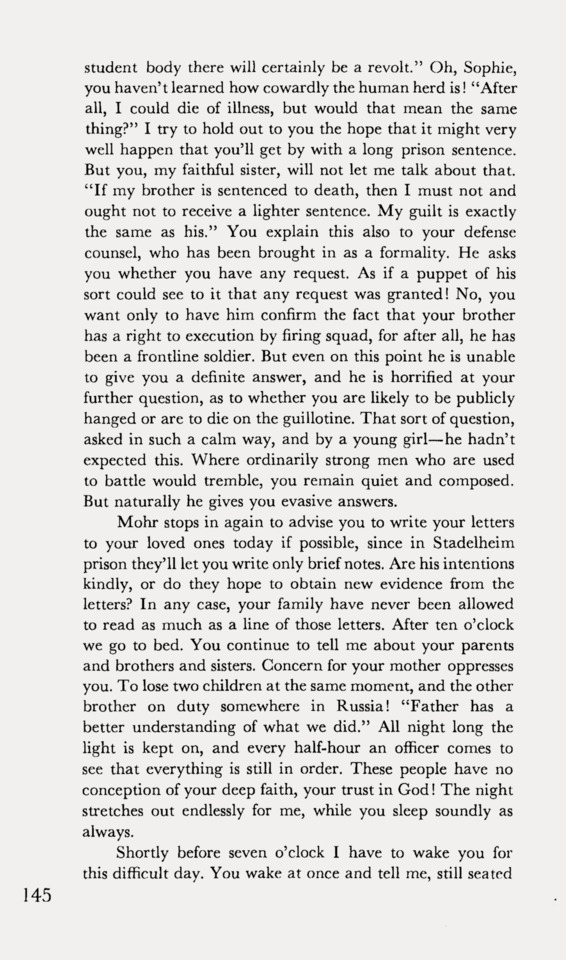
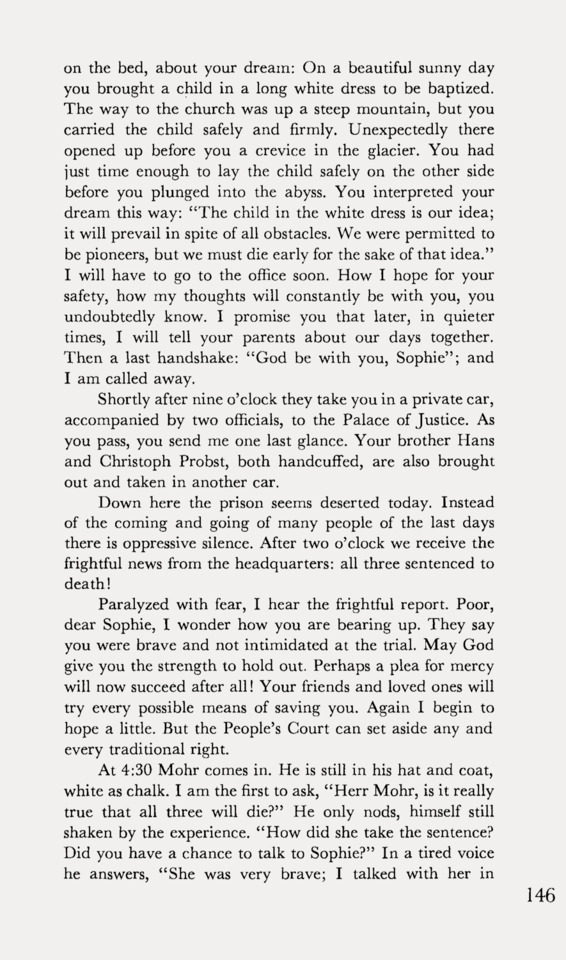
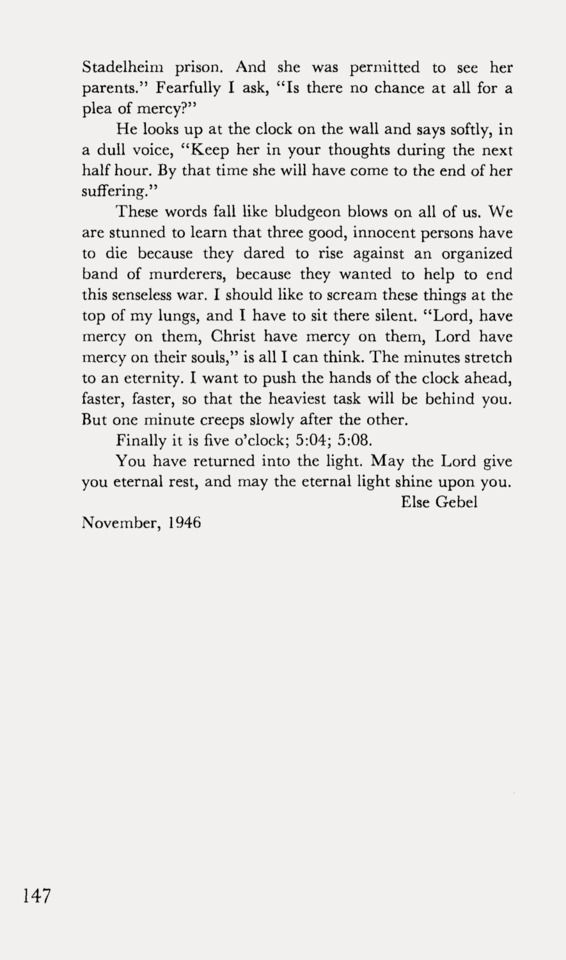
Inge Scholl, (1952), The White Rose. Munich 1942-1943, With an Introduction by Dorothee Sölle, Translated from the German by Arthur R. Schultz, Wesleyan University Press, Middletown, CT, 1983, pp. 138-147
239 notes
·
View notes
Link
3 notes
·
View notes
Photo
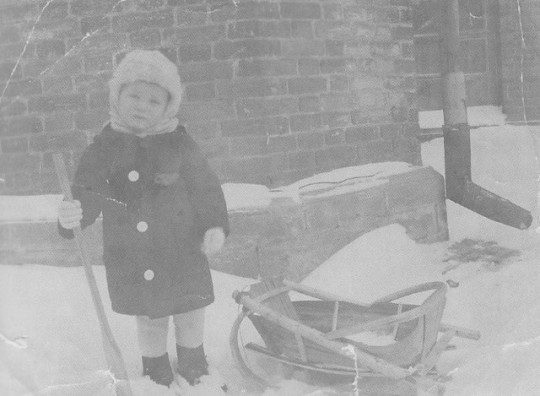
Alexander Schmorell, Orenburg, winter 1919.
25 notes
·
View notes
Photo
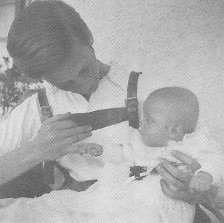
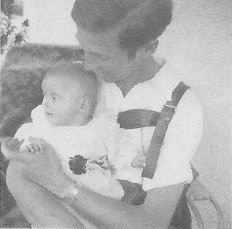
Alexander Schmorell, with Christl’ son, Vincent, summer 1942.
55 notes
·
View notes
Photo
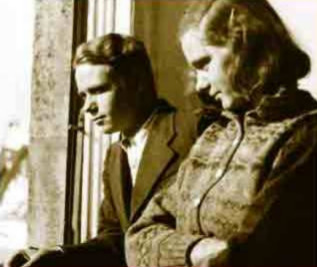
Werner and Elisabeth Scholl, no date (~ 1938-1944)
23 notes
·
View notes
Photo
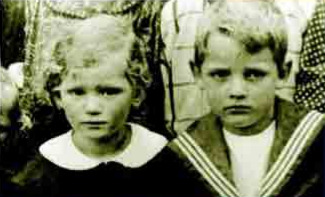
Elisabeth and Hans Scholl, no date (probably in the 1920s)
19 notes
·
View notes
Photo
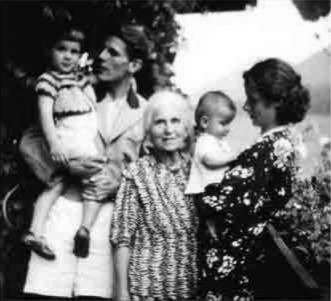
The Probst Family, with Christl’s grandmother, 1940-1943. © Michael Probst
21 notes
·
View notes
Quote
I hold melancholy far too sacred to avoid it.
Sergeant Hans Scholl of the Wehrmacht, from an August 17, 1942 entry in his Russia Diary. In six months and five days, he would be beheaded in Munich for his participation in the anti-Nazi group the White Rose.
Remember the German resistance!
(via the-white-rose-six)
18 notes
·
View notes
Photo
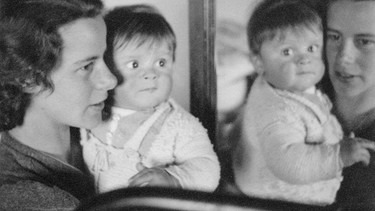
Herta Dohrn Probst, widow of Christoph Hermann Probst, martyr of the German resistance. Also pictured is one of their three children- probably Katja, their youngest, born only three weeks before Christoph was arrested, interrogated, and beheaded for his participation in the White Rose, a resistance group made up of university students who wrote, printed, and spread six anti-Nazi leaflets throughout Munich. Christoph hand-wrote a draft of a seventh, never published leaflet, which the Gestapo used to identify and arrest him. He was beheaded for treason on February 22, 1943, at the age of twenty-four, leaving Herta, sick with childbed fever, a single mother to three children.
3 notes
·
View notes
